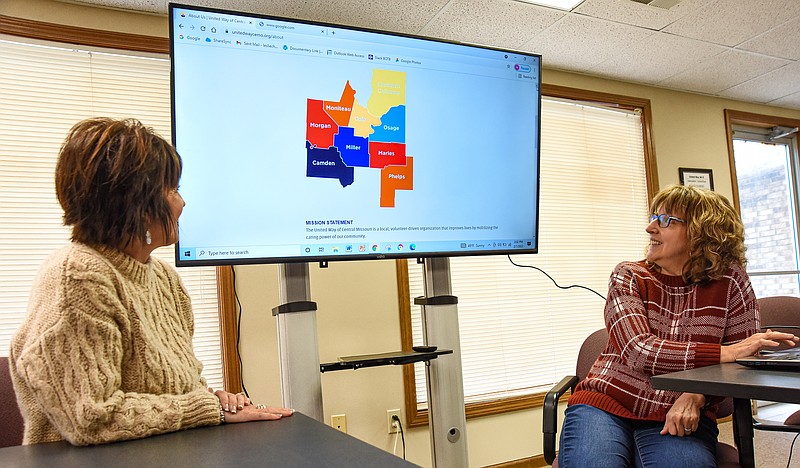The chase to keep up with evolving technology can be frustrating.
Nonprofits feel that pressure to stay on top of the latest equipment, which may help them better serve their clients, but resist so they use every available dime for the greater good.
And they fall behind.
Gov. Mike Parson included $20 million in his proposed budget for 2023 to provide grants for nonprofits that may have been forced to expand services or change the way they offer services because of the COVID-19 pandemic. The money, part of the American Rescue Plan Act (ARPA), would allow nonprofits to upgrade their technology and serve their clients in new ways.
Technology is a challenge for nonprofits, which aim to do the most good with what they have.
United Way Worldwide recently offered similar grants to its local organizations, said Ann Bax, president of the United Way of Central Missouri.
"The gaps that our United Way has -- it's a huge struggle," Bax said. "We're all putting our money back into services."
However, because of the way an agency like the United Way operates, it doesn't normally qualify for grants from governments or other nonprofit organizations. The United Way doesn't raise money to provide specific services. Instead, it raises money to distribute among agencies that provide the services.
United Way Worldwide awarded the local United Way $10,000 for technology upgrades. The organization used the award for a large monitor and several laptops.
"You shouldn't have to have the top of the line laptops," Bax said. "But, if you don't have quality, it precludes you from having Zoom meetings."
Shad Burner, Missouri Department of Economic Development (DED), will help oversee ARPA funds that go through the department. He was involved in distribution of funds the state received through the Coronavirus Aid, Relief and Economic Security (CARES) Act.
The DED, he said, offered a nonprofit relief and recovery program through CARES in 2020, and was able to support 190 projects with $18.2 million in grants. But it received many more requests.
"We know that people are hurting," Burner said. "We definitely wanted to use ARPA funds to support a new nonprofit program -- assist nonprofits that haven't received assistance yet."
The kinds of assistance the new program will provide, will focus on impacts, such as decreased revenues or increased costs.
"Those are major expenses, we expect," he said.
The program will be dependent on whether the General Assembly approves use of the funds. Should lawmakers approve the program, it will begin July 1. Burner added the DED will let folks know when they can apply for funds.
Generally speaking, the funds will be dedicated to 501 (c)(3) organizations, which are tax-exempt nonprofits, and to 501 (c)(19) organizations, which are tax-exempt veterans' organizations.
"We will be going through a process where we seek some information from folks on all these ARPA grants," Burner said. "So we can make adjustments from the last round. We aren't quite that far along in building that program out."
What folks should keep in mind is the requests should reflect expenses incurred from March 3, 2020, going forward.
"Our hope is to disperse the funds as quickly as possible. We're really trying to streamline the process as much as we can," Burner said. "It will hopefully happen very quickly. This will be on a first-come, first-served basis."
All the ARPA funds must be allocated by the end of 2024 and spent by the end of 2026. DED anticipates the nonprofit grant will be depleted much quicker than that, he said.

